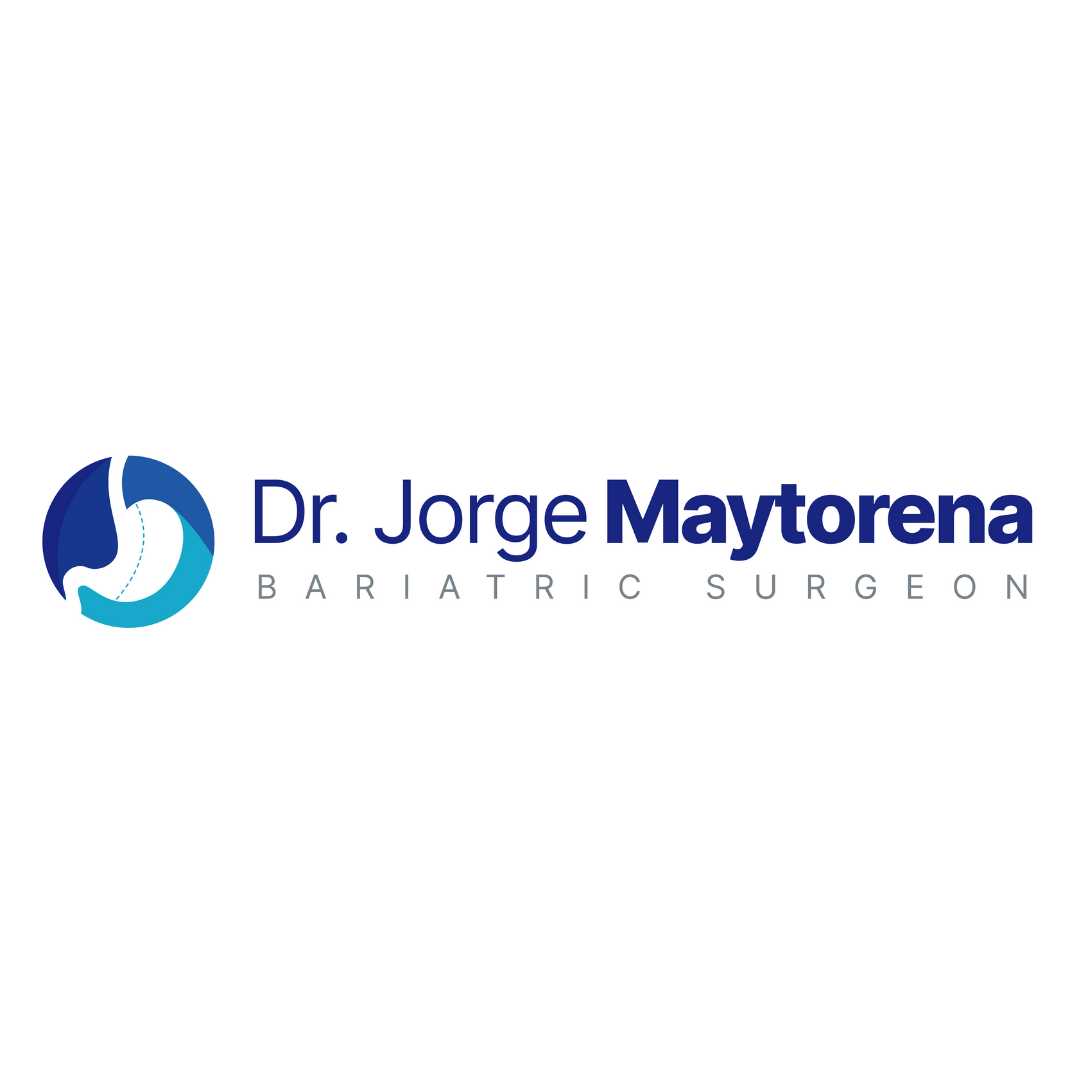Is Revision Bariatric Surgery in Tijuana Right for You?

It can be incredibly disheartening to undergo bariatric surgery, only to find that you haven't achieved the weight loss results you hoped for, or worse, you've regained weight. For many, this isn't the end of their weight loss journey, but rather a turning point towards revision bariatric surgery. Tijuana, Mexico, has emerged as a leading destination for these specialized procedures, offering advanced medical care at a fraction of the cost found in other countries. This comprehensive guide will answer your most pressing questions about revision bariatric surgery in Tijuana, giving you the information you need to make an informed decision and take the next step towards a healthier you.
What is Revision Bariatric Surgery?
"Revision bariatric surgery is a secondary surgical procedure performed on patients who have previously undergone weight loss surgery but have not achieved their desired weight loss goals, have experienced weight regain, or have developed complications from their initial procedure."
This type of surgery is designed to modify or correct issues that have arisen after the first bariatric procedure. It's a complex field, requiring a high level of surgical expertise, as it often involves working with altered anatomy and scar tissue from the initial operation. The goal is to address the specific problems a patient is facing, whether that's insufficient weight loss, weight regain, or complications like persistent reflux, ulcers, or nutritional deficiencies. It offers a renewed opportunity for patients to achieve significant and sustainable weight loss and improve their overall health.
Why might someone need Revision Bariatric Surgery?
"Patients typically need revision bariatric surgery due to insufficient weight loss, significant weight regain, or the development of complications from their initial weight loss procedure."
The reasons for needing a revision are varied. Sometimes, the original procedure simply didn't achieve the expected weight loss. This could be due to the natural stretching of the stomach pouch or the widening of the connections (anastomosis) over time, allowing patients to eat more than intended. In other cases, patients may have regained a significant portion of the weight they initially lost, often because their body has adapted to the surgery, or they've struggled to maintain strict adherence to the post-surgical diet and lifestyle changes. Furthermore, some individuals develop chronic complications such as severe acid reflux (GERD), ulcers, strictures, or nutritional deficiencies that significantly impact their quality of life and require surgical correction.
What types of Revision Bariatric Surgery are available in Tijuana?
"A wide range of revision bariatric surgery types are available in Tijuana, including converting a gastric band to a sleeve or bypass, revising a stretched gastric sleeve, or addressing issues with a gastric bypass."
Tijuana offers a comprehensive suite of revision procedures, tailored to the specific needs of each patient. These include:
- Lap-Band Revision/Removal: Many patients who initially underwent Lap-Band surgery may need revision due to inadequate weight loss, band erosion, slippage, or intolerance. Revisions often involve removing the band and converting to a more effective procedure like a gastric sleeve or gastric bypass.
- Gastric Sleeve Revision: If a gastric sleeve has stretched over time, or if the initial weight loss was insufficient, a revision might involve re-sleeving (making the sleeve smaller again), or converting the sleeve to a gastric bypass or a duodenal switch. This helps restore the restrictive effect and can improve metabolic outcomes.
- Gastric Bypass Revision: While less common, a gastric bypass can sometimes require revision. This may involve repairing a stretched pouch, narrowing the connection between the pouch and the small intestine (stoma), or addressing complications such as ulcers, fistulas, or severe nutritional deficiencies.
- Conversion to Duodenal Switch or SADI-S: For patients who have had a gastric sleeve but need more significant weight loss or resolution of comorbidities, conversion to a duodenal switch (DS) or Single Anastomosis Duodeno-Ileal Bypass with Sleeve Gastrectomy (SADI-S) can be a highly effective option. These procedures offer greater malabsorptive components, leading to more substantial and sustained weight loss.
The specific revision procedure chosen will depend on the original surgery, the reason for the revision, and the patient's individual health profile.
How much does Revision Bariatric Surgery cost in Tijuana?
"Revision bariatric surgery in Tijuana typically costs significantly less than in the United States or Canada, with prices often ranging from $5,300 to $10,000 USD for an all-inclusive package, depending on the complexity of the procedure and the clinic."
The cost is one of the primary reasons many individuals choose Tijuana for their revision bariatric surgery. While prices vary based on the specific type of revision, the surgeon's experience, and the facility, it's generally a fraction of what you'd pay in Western countries. For instance, a gastric bypass revision in the US could cost upwards of $20,000 to $30,000, whereas in Tijuana, it might be $7,000 to $10,000. These all-inclusive packages often cover hospital fees, surgeon's fees, anesthesiologist's fees, pre-operative tests, post-operative medications, and even transportation and accommodation. This affordability, combined with high-quality care, makes Tijuana an attractive option.
Are clinics in Tijuana safe for Revision Bariatric Surgery?
"Yes, many Bariatric clinics in Tijuana are safe and accredited for revision bariatric surgery, often operating in state-of-the-art facilities that meet international standards and employing highly experienced, board-certified surgeons."
Tijuana has become a global hub for medical tourism, and a significant part of its appeal lies in the quality and safety of its medical facilities. Reputable bariatric clinics in Tijuana invest heavily in modern equipment, maintain stringent hygiene protocols, and employ medical staff, including surgeons and anesthesiologists, who are board-certified and have extensive experience in bariatric and revision bariatric surgery. Many hospitals catering to medical tourists are internationally accredited, ensuring they adhere to high standards of patient care and safety. It is crucial, however, to do thorough research and choose a well-regarded clinic with a strong track record and positive patient reviews.
What is the success rate of Revision Bariatric Surgery?
"The success rate of revision bariatric surgery varies depending on the type of procedure and the patient's adherence to lifestyle changes, but many patients achieve significant additional weight loss, with some studies showing an average of 12-15% total body weight loss after one year."
Success in revision bariatric surgery is often measured by renewed weight loss and the resolution of complications. While it can be a more challenging procedure than the initial surgery due to altered anatomy, many patients experience positive outcomes. For example, endoscopic gastric sleeve revisions have shown success rates of 82% of patients losing at least 10% of their body weight. Surgical gastric sleeve revisions can result in 60-70% success rates in achieving meaningful weight loss. Factors like the patient's overall health, BMI before revision, and commitment to post-operative dietary and exercise guidelines significantly influence the outcome. Patients who seek revision within two to three years of their initial surgery often see better results as weight regain may not be as severe.
What should I expect during a Revision Bariatric Surgery consultation in Tijuana?
"During a revision bariatric surgery consultation in Tijuana, you can expect a comprehensive review of your medical history, including your previous bariatric surgery details, a physical examination, and a detailed discussion about your current health, weight loss goals, and potential revision options."
The consultation is a critical step. The surgeon will thoroughly assess why your initial surgery didn't meet expectations or what complications you're experiencing. This typically involves reviewing your complete medical records, including past surgical reports, recent blood work, and imaging studies (like X-rays or endoscopies). You'll discuss your weight history, eating habits, and any symptoms you're experiencing. The surgeon will explain the various revision bariatric surgery options suitable for your case, outlining the benefits, risks, and expected outcomes for each. This is also an opportunity to ask any questions you have about the procedure, recovery, and post-operative care, ensuring you are fully informed before making a decision.
How long is the recovery period for Revision Bariatric Surgery?
"The recovery period for revision bariatric surgery can vary depending on the complexity of the procedure, but typically involves a hospital stay of 2-3 days, followed by several weeks of limited activity and a gradual return to normal diet and routine, similar to initial bariatric surgery."
While often more intricate than the initial procedure, the recovery process for revision bariatric surgery generally follows a similar pattern to primary bariatric surgeries. Immediately after surgery, patients will spend a few days in the hospital for monitoring and initial recovery. During this time, pain management will be provided, and you'll begin a liquid diet. Once discharged, a strict liquid diet will continue, gradually progressing to pureed and then soft foods over several weeks. Most patients can return to light activities within 2-4 weeks, but full recovery and the ability to resume all normal activities, including strenuous exercise, may take 6-8 weeks or longer. Adhering to the surgeon's post-operative instructions is crucial for a smooth and successful recovery.
What are the risks associated with Revision Bariatric Surgery?
"The risks associated with revision bariatric surgery include, but are not limited to, bleeding, infection, leaks, strictures, nutritional deficiencies, and a higher risk of complications compared to primary bariatric surgeries due to existing scar tissue and altered anatomy."
As with any surgical procedure, there are inherent risks, and revision bariatric surgery can carry a slightly higher risk profile than initial bariatric procedures. This is primarily because the surgeon is operating in an area that has already been surgically altered, which can lead to more scar tissue and adhesions, making the surgery technically more challenging. Specific risks can include:
- Bleeding: Internal bleeding can occur during or after the surgery.
- Infection: Any surgical site carries a risk of infection.
- Leaks: A leak from the newly created stomach pouch or connections is a serious but rare complication.
- Strictures: Narrowing of the connections can occur, requiring further endoscopic procedures to widen them.
- Nutritional Deficiencies: Alterations to the digestive tract, especially with malabsorptive procedures, can lead to deficiencies in vitamins and minerals, requiring lifelong supplementation.
- Anesthesia Complications: Risks associated with general anesthesia apply to any surgery.
- Failure to Achieve Desired Weight Loss: While the goal is improved weight loss, there's always a possibility that the desired results may not be fully achieved.
Your surgeon will discuss these risks in detail during your consultation, ensuring you understand them thoroughly before proceeding.
Is Revision Bariatric Surgery covered by insurance?
"Whether revision bariatric surgery is covered by insurance depends on your specific insurance policy and the medical necessity of the procedure; many policies in the US and Canada may not cover international procedures, though some may offer partial reimbursement."
Insurance coverage for revision bariatric surgery can be complex. In the United States and Canada, coverage typically depends on whether the procedure is deemed medically necessary and if your policy includes bariatric surgery. However, many insurance plans do not cover procedures performed outside of your home country. Even if your original bariatric surgery was covered, a revision might require additional documentation and justification to demonstrate medical necessity. It's crucial to contact your insurance provider directly to understand your policy's specifics, including coverage for international procedures, pre-authorization requirements, and any out-of-pocket expenses you may incur. Many patients traveling to Tijuana for revision bariatric surgery choose to self-pay due to the significant cost savings.
What is the typical process for getting Revision Bariatric Surgery in Tijuana?
"The typical process for revision bariatric surgery in Tijuana involves an initial online consultation, thorough pre-operative evaluations and medical tests, travel to Tijuana, the surgery itself, a short hospital stay, and a post-operative follow-up plan."
Here's a general overview of the process:
- Initial Contact & Consultation: Most patients begin by contacting a bariatric clinic or facilitator in Tijuana online. You'll usually be asked to provide your medical history, details about your previous bariatric surgery, and current health information. An initial virtual consultation with a surgeon will then be scheduled.
- Pre-operative Evaluations: Once you decide to proceed, you'll undergo a series of pre-operative tests, which may include blood work, EKG, endoscopy, and other diagnostic imaging. Some tests can be done in your home country and sent to the clinic, while others may be performed upon arrival in Tijuana.
- Travel to Tijuana: You'll arrange your travel to Tijuana, often with assistance from the clinic or facilitator who can help with airport transfers and accommodation.
- In-person Consultation & Pre-op: Upon arrival, you'll have an in-person consultation with your surgeon to finalize the surgical plan and address any last-minute questions. Further tests might be conducted if needed.
- Surgery: The revision bariatric surgery is performed in a hospital setting.
- Hospital Stay: Patients typically stay in the hospital for 2-3 days for recovery and monitoring.
- Post-operative Care & Discharge: Before discharge, you'll receive detailed instructions on post-operative care, diet progression, and medications.
- Follow-up: Most clinics provide a structured follow-up plan, which may include remote consultations and guidance on long-term lifestyle changes.
What are the long-term outcomes after Revision Bariatric Surgery?
"Long-term outcomes after revision bariatric surgery can include sustained weight loss, improved resolution of obesity-related health conditions, and enhanced quality of life, provided patients commit to lifelong dietary and lifestyle modifications and regular follow-up."
The goal of revision bariatric surgery is to provide a lasting solution to the challenges faced after primary bariatric surgery. While individual results vary, many patients experience significant improvements. This often includes achieving additional weight loss that was not possible after the initial surgery, leading to a healthier body mass index. Beyond weight loss, patients frequently see the resolution or significant improvement of obesity-related comorbidities such as type 2 diabetes, high blood pressure, sleep apnea, and joint pain. A better quality of life, increased mobility, and improved self-esteem are also common and vital long-term benefits. Lifelong adherence to dietary guidelines, vitamin supplementation, and regular follow-up with medical professionals are crucial for maximizing and maintaining these positive outcomes.
What are the alternatives to surgical revision for weight regain?
"Alternatives to surgical revision bariatric surgery for weight regain can include intensive medical weight management programs, re-engagement with diet and exercise, and in some cases, endoscopic procedures to reduce stomach pouch size or stoma diameter without traditional surgery."
For some patients experiencing weight regain, a surgical revision might not be the first or only option. Non-surgical approaches include:
- Intensive Medical Weight Management: This involves working closely with a dietitian, exercise physiologist, and behavioral therapist to re-evaluate and optimize dietary habits, physical activity levels, and psychological factors contributing to weight regain.
- Pharmacotherapy: Certain weight loss medications may be prescribed to help manage appetite and promote further weight loss.
- Endoscopic Procedures: These minimally invasive procedures can be performed through the mouth, without incisions. Examples include endoscopic sleeve gastroplasty (ESG) for gastric sleeve patients to reduce pouch size, or transoral outlet reduction (TORe) for gastric bypass patients to tighten a stretched stoma. These procedures often have shorter recovery times and fewer risks than traditional surgery. The best alternative depends on the individual's specific situation, the type of original surgery, and the reasons for weight regain.
How to choose a reputable clinic for Revision Bariatric Surgery in Tijuana?
"To choose a reputable clinic for revision bariatric surgery in Tijuana, look for board-certified surgeons with extensive experience in revision procedures, hospitals with international accreditations, transparent pricing, comprehensive patient reviews, and clear communication channels."
Selecting the right clinic is paramount for a safe and successful outcome. Here are key factors to consider:
- Surgeon's Qualifications and Experience: Ensure the surgeon is board-certified and has specific, extensive experience performing revision bariatric surgery. Ask about their success rates and how many revision procedures they perform annually.
- Hospital Accreditation: Look for hospitals that are accredited by international organizations (e.g., Joint Commission International - JCI) or that clearly state they meet US hospital standards. This indicates a commitment to high-quality care and patient safety.
- Transparency in Pricing: A reputable clinic will provide a clear, all-inclusive cost breakdown with no hidden fees.
- Patient Reviews and Testimonials: Research patient experiences on independent forums, review sites, and the clinic's website. Look for consistent positive feedback regarding outcomes, care, and communication.
- Communication and Support: Assess how responsive and clear the clinic's communication is during your initial inquiries. A good clinic will offer bilingual staff and comprehensive pre and post-operative support.
- Facilities and Equipment: Inquire about the modernity of their operating rooms, equipment, and recovery facilities.
By diligently researching these aspects, you can increase your confidence in choosing a trusted provider for your revision bariatric surgery in Tijuana.
Considering revision bariatric surgery to achieve your weight loss goals or address complications? Explore PlacidWay's network of world-class medical tourism solutions for tailored healthcare services that meet your needs.


.png)

.png)


.png)









Share this listing